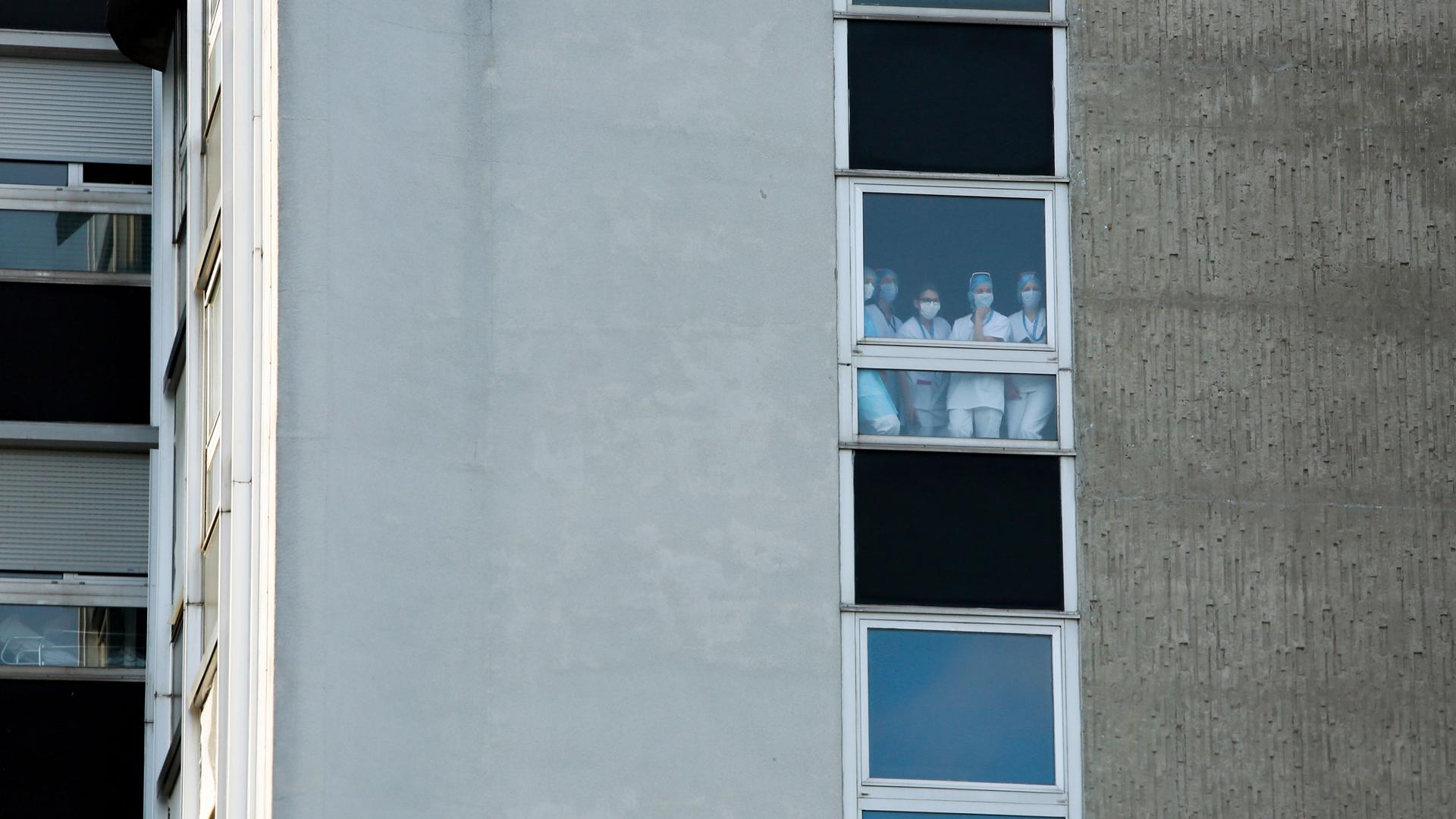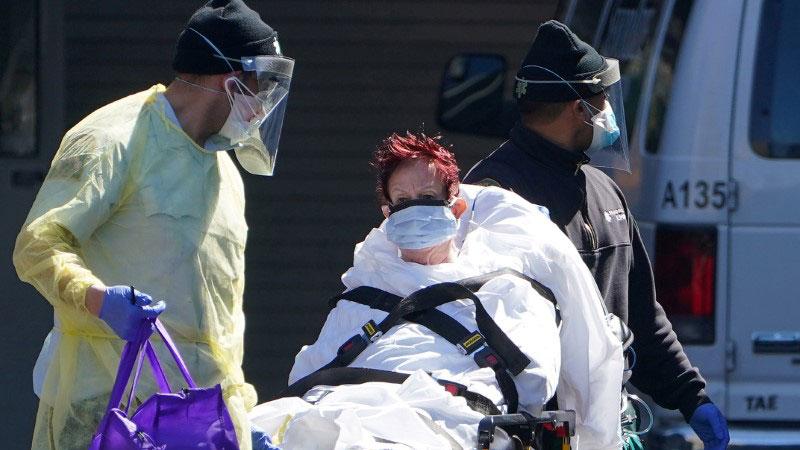US leads in confirmed coronavirus cases; Germany’s low mortality rate; How families around the world talk coronavirus with kids
A patient is wheeled to an ambulance during the outbreak of Coronavirus disease (COVID-19), in the Manhattan borough of New York City, New York, March 26, 2020.
Top of The World — our morning news round up written by editors at The World. Subscribe here.
Despite still falling far behind on testing, the US now has the most confirmed novel coronavirus cases in the world — 86,000, with nearly 40,000 in New York alone. Hopitals desperately started sharing ventilators between patients, as US President Donald Trump cast doubt on the state’s need for some 30,000. Louisiana, where recent Mardi Gras celebrations likely exacerbated the outbreak, is expected see the next wave.
British Prime Minister Boris Johnson has tested positive for COVID-19, as has a member of Russian President Vladimir Putin’s staff. And as the US retreats to deal with the crisis at home, rivals Russia and China are taking the lead on offering aid around the world.
From The World: Leon Panetta on coronavirus: ‘We’re paying the price’ of ignoring intelligence reports
Discussion: The coronavirus pandemic and predicting gaps in healthcare capacity
Germany’s low mortality rate and rights abuses in the Philippines
Germany, which has the world’s fifth-hightest number of confirmed COVID-19 cases, also has a startlingly low fatality rate — just 0.5% of patients with the novel coronavirus have died. In Italy, the rate is 20 times higher — 10%. Testing and quality care might be part of the answer, but what’s behind the mystery of Germany’s low death rate?
A plan to bring Filipino nurses to Germany to help with the outbreak faced swift backlash and was paused, as the Philippines itself is in clear need of medical professionals. And Human Rights Watch warns that under Philippine President Rodrigo Duterte, coronavirus curfew violators are facing human rights abuses from police and local officials, including being locked in dog cages.
From The World: As it braces for coronavirus, Yemen offers lessons of survival for the world
And: Hong Kong epidemiologist warns pandemic’s end may not be straightforward
US-Mexico border closure brings local economy to a halt
A $2 trillion stimulus bill is now headed to the US House of Representatives. The rescue package represents a marked shift in the role of US government in private business. Economists say some 40 million Americans could lose their jobs by mid-April.
Economic woes are already hitting the mostly rural, US border region, which depends on commerce from northern Mexico. Sales taxes collected from Mexican shoppers represent at least 40% of local US government revenues near the border. But new restrictions block cross-border travel for commerce or sightseeing — cutting off US businesses from most of their Mexican customers.
And: The $2.2 trillion stimulus can’t be the last thing Congress does on coronavirus
The Big Fix: Coronavirus is changing how people think about fighting climate change
People’s social environments are the most powerful predictor of what they will do in almost every setting. That peer pressure effect can be put to work to help solve big global problems, such as the coronavirus outreak or climate change, Cornell University economist Robert Frank says.
If someone you know takes up social distancing to prevent the spread of the virus or starts flying less because of climate change, you’re more likely to do it, too.
How families around the world talk coronavirus with kids
It’s hard explaining to kids what COVID-19 is, much less the new restrictions that come with it. Reporter Ari Daniel spoke to families across the globe, from Pakistan to Lebanon to Lithuania to the UK, about their challenges and how they’re making do.
Little Unė from Lithuania wishes the virus “would go away somehow.” Farah from Pakistan echoes those sentiments, saying, “I hope that soon scientists will find out a cure. Or it might suddenly disappear.” And when that day of cure or retreat of the virus finally dawns, Farah, who turns 9 later this year, simply hopes “that we’re allowed to go out so that I can have a birthday party.”
Morning meme
Today, The World newsroom will be singing along to Neil Diamond’s “Sweet Caroline.” Join us with his new update to the song ??

In case you missed it
Listen: Understanding COVID-19 from the front lines

The novel coronavirus is novel in a number of ways. It’s disturbingly easy to spread, often coming from people with no symptoms. Infectious disease epidemiologist Gabriel Leung, who has been at the forefront of understanding the coronavirus, explains what we now know and what remains a mystery about COVID-19. And, we speak with former Pentagon chief Leon Panetta about the challenges that limit the movement and role of US troops to help combat the coronavirus crisis. Also, how do you explain a pandemic to kids so they get the gravity of the situation, but don’t freak out?
Don’t forget to subscribe to The World’s Latest Edition podcast using your favorite podcast player: RadioPublic, Apple Podcasts, Stitcher, Soundcloud, RSS.
Our coverage reaches millions each week, but only a small fraction of listeners contribute to sustain our program. We still need 224 more people to donate $100 or $10/monthly to unlock our $67,000 match. Will you help us get there today?
